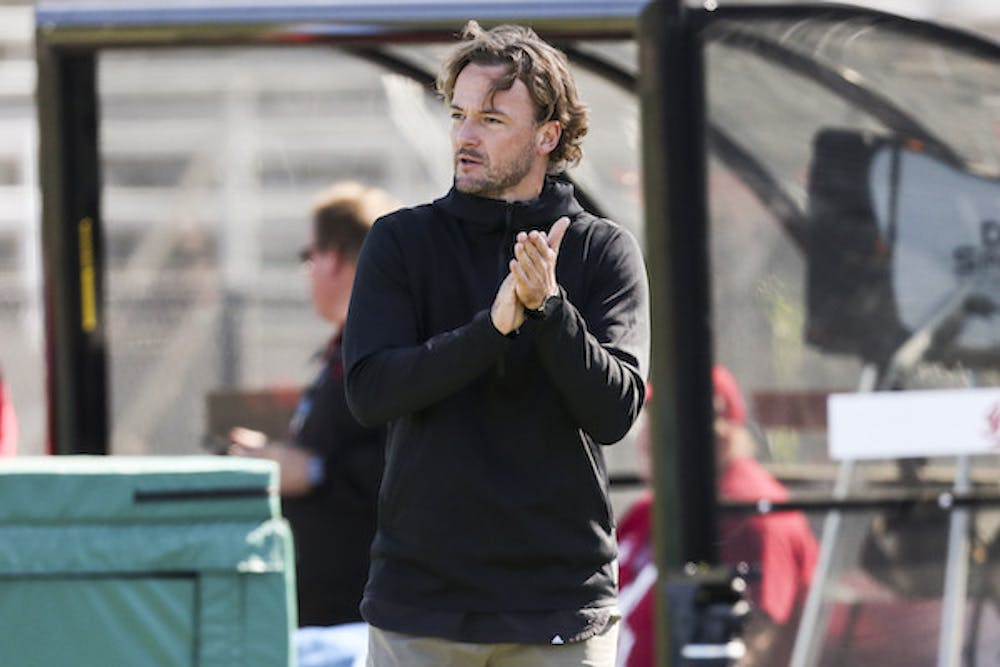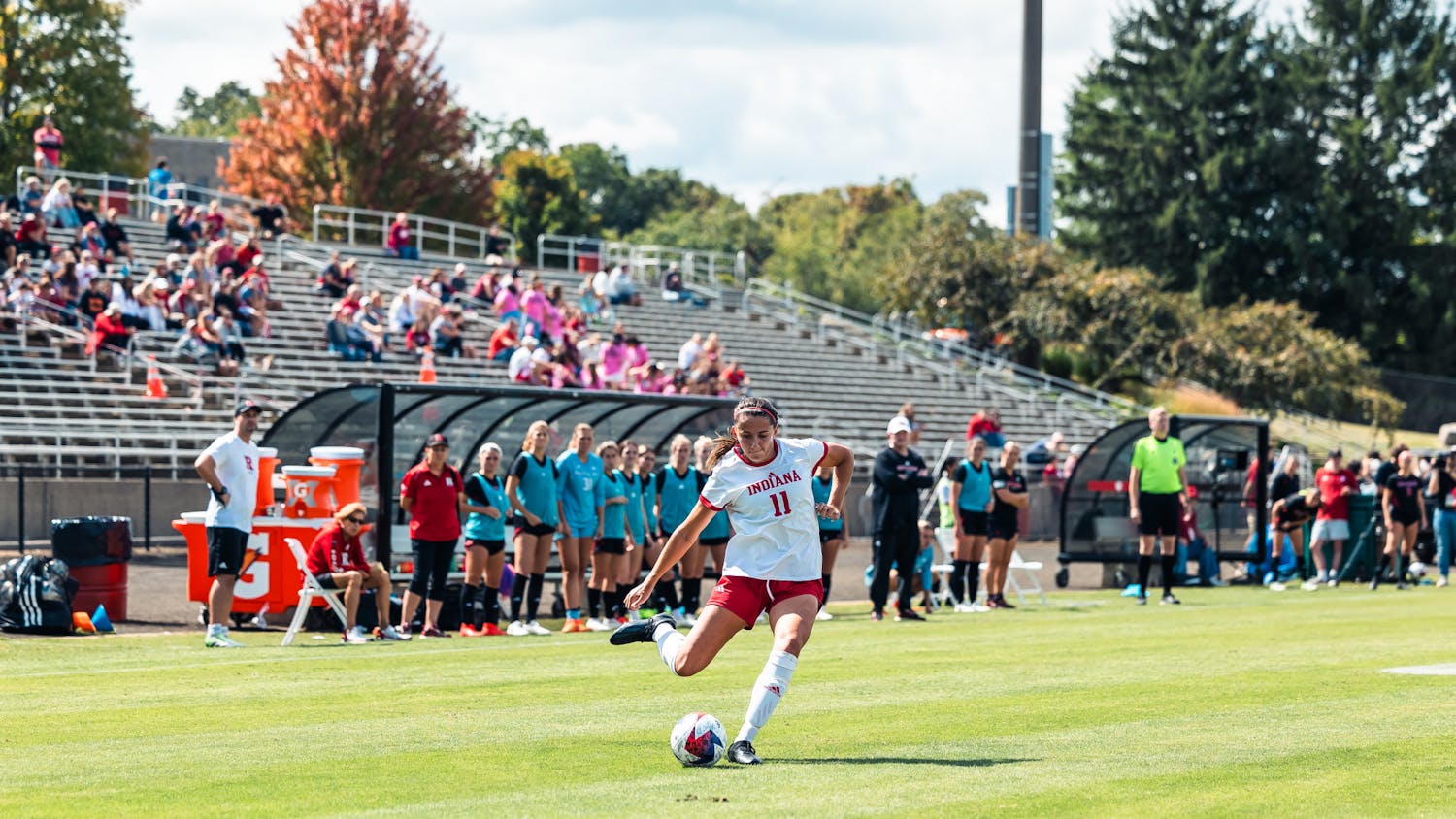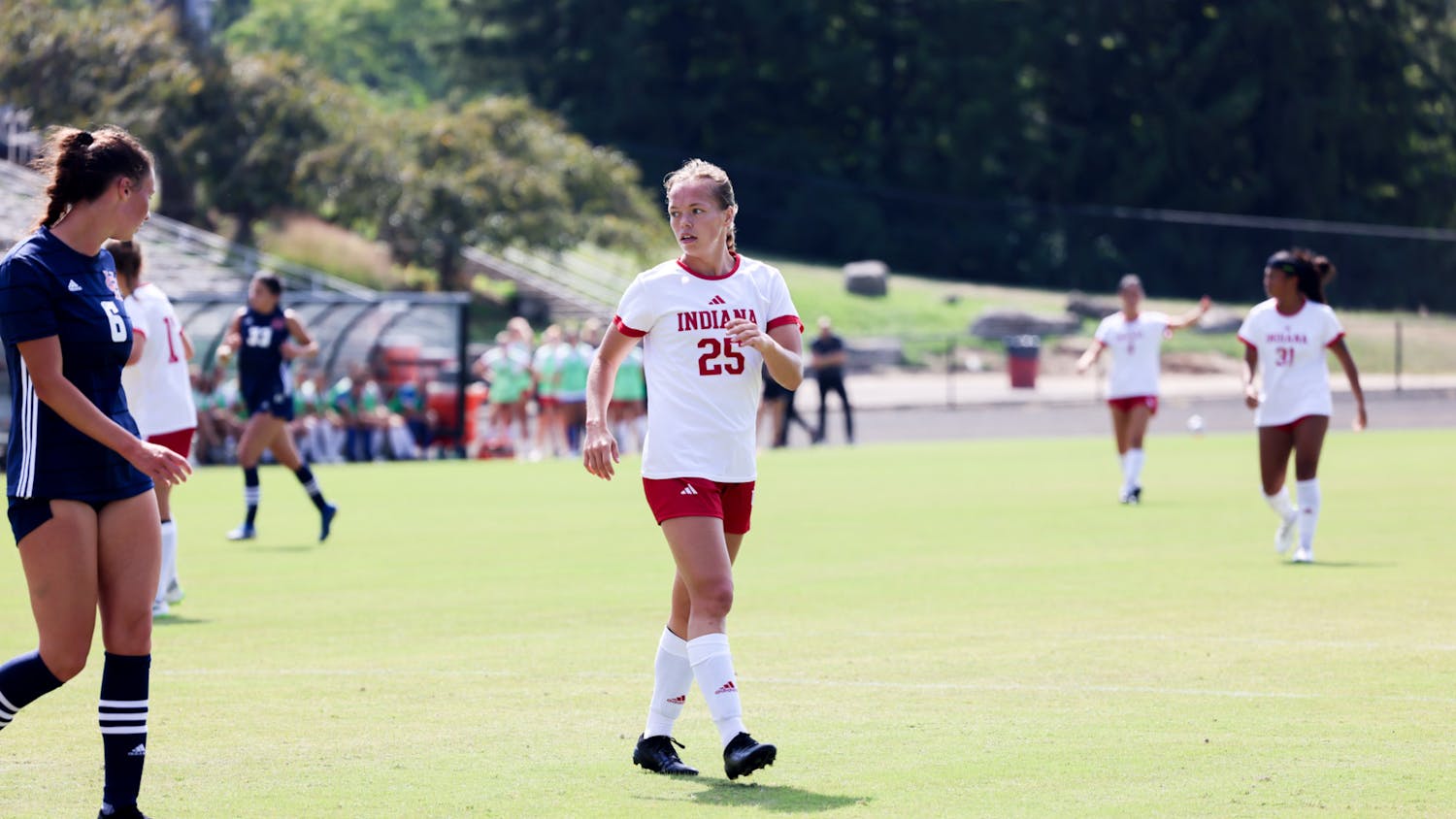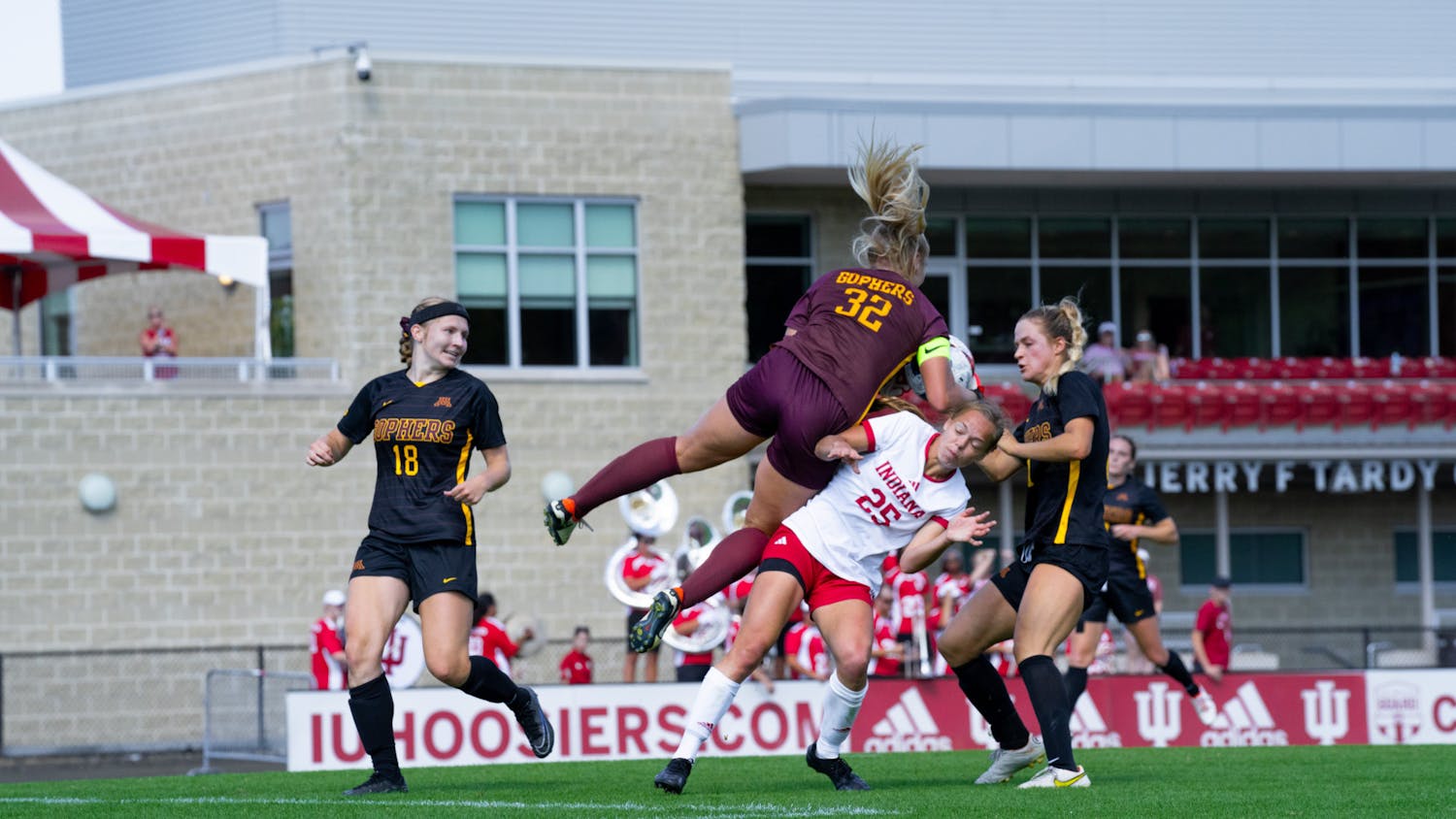Erwin van Bennekom chops his feet. The soccer coach’s slender, 6-foot-3-inch frame swings towards a bouncing ball, as he plants his left foot into the turf. He fires off a saucer-like cross, wrapped in pace towards one of his players.
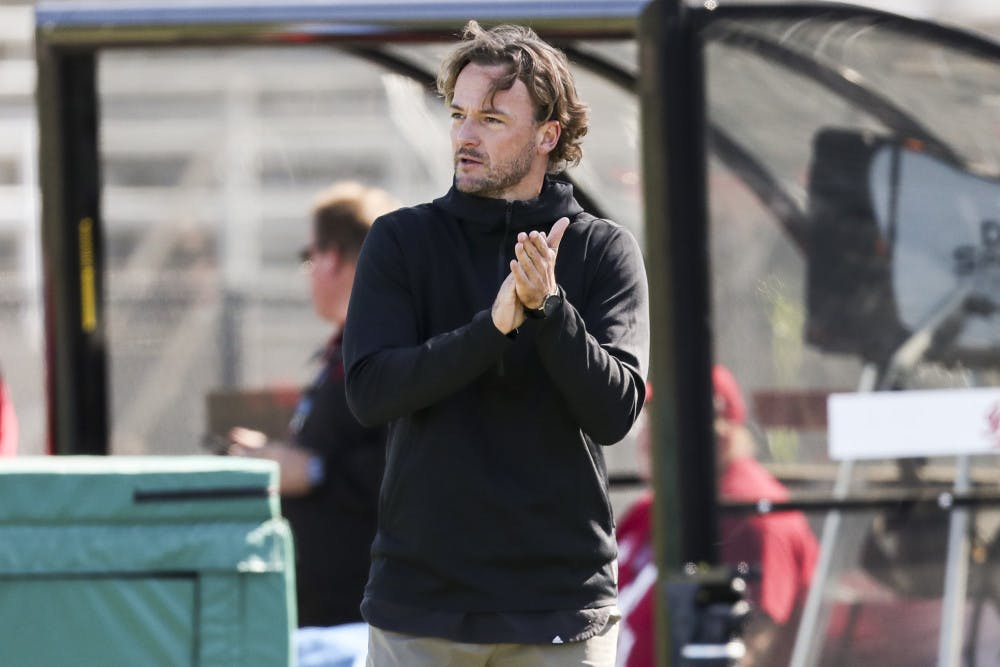
“Ah, c’mon!” van Bennekom yells as the ball skips wide past its target. His team laughs and he grins on after an intense final round of training ahead of Indiana’s clash with perennial Big Ten powerhouse Penn State. It’s clear van Bennekom’s rapport with his student athletes is in midseason form, and in their post-practice stretch circle, he stresses the opportunity to pull off an upset less than 24 hours away, and win their third consecutive match in conference.
“The 5 percent of women that want to play soccer after college career, I want them to come here, because they know they’re getting a better soccer education” van Bennekom said.
Indiana ended up dropping the match to Penn State, 1-0, but finished the season ahead of schedule in their rebuild, with a 7-9-2 record and a seventh-place finish in the Big Ten.
van Bennekom has barely been in Bloomington for a full calendar year, but his adaptable tactics, style and fiery personality have already ignited a once dull and dormant program. He comes from the Netherlands, where playing the game is the root of its rewards. The 35-year old Dutchman’s genuine respect for it — molded on concrete playing courts outside Rotterdam — fuels him as he attacks the biggest project of his decade-plus-long and obsessive stateside coaching journey.
***
All the houses in Erwin van Bennekom’s small hometown neighborhood on the outskirts of Rotterdam look the same — efficiently cloned row structures in brick.
The neighborhood’s hub is a concrete field, bracketed by two small metal goals. Thirty or more kids pile in, and the winner stays. This is the anchor in many Dutch communities that breeds a national passion for soccer.
“Every kid that was good back home would play on the street for three hours during the day and then train at night with their club team,” van Bennekom says. “We didn’t lift weights, we didn’t do strength and conditioning, we just played. The real context of the game is playing the game.”
The nation is soccer crazed and largely middle class with little extremes towards rich or poor. van Bennekom’s father is a truck driver and his mother works in childcare administration.
A former center forward, he came up playing against two of Holland’s most famous footballers — Robin van Persie and Arjen Robben, both members of the country’s most recent golden generation.
“No kid that ever played in a World Cup for Holland ever played in another sport,” he said. “Nobody even thought about other sports.”
That attitude is a contrast from America’s rowdy sports marketplace where soccer competes with the likes of football, basketball or baseball. In Dutch culture, it’s a lifestyle. He misses the simple play in the streets and being a supporter at Feyenoord games, his hometown club. He remembers getting up in the middle of the night to watch Holland play in the 1994 World Cup, hosted by the United States.
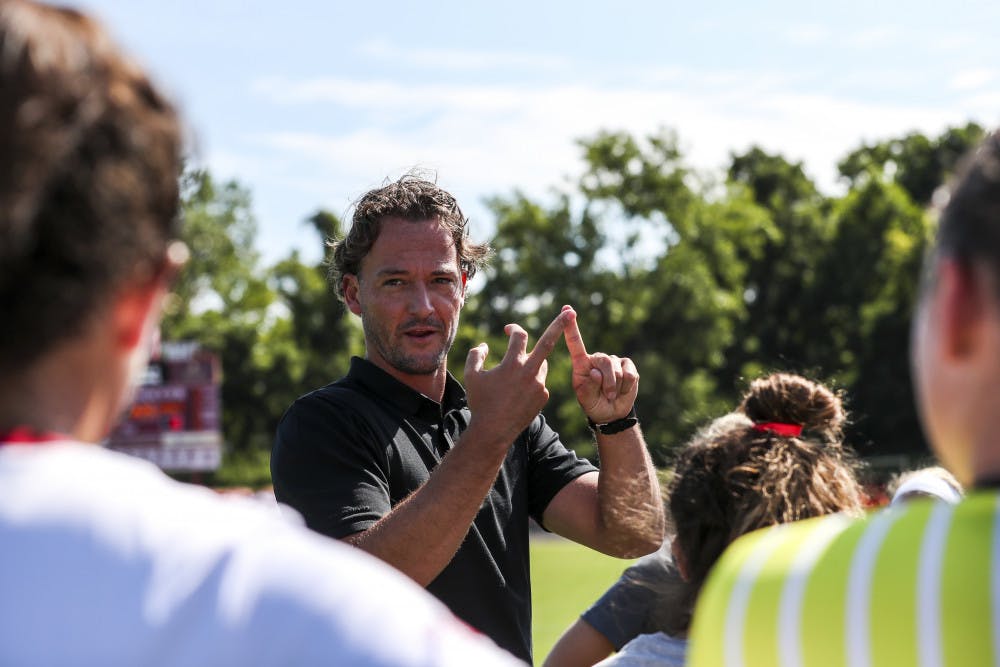
The Dutch advanced to the quarterfinals before losing to Brazil, 3-2 on a free kick in extra time at the Cotton Bowl in Dallas — one of many heartbreaks on the world stage for Holland, not to mention their 2010 World Cup Final loss to Spain and 2014 run snapped in the semis by Lionel Messi and Argentina on penalties.
van Bennekom watched both of the latter matches during the early stages of his stay in the United States, a place where he now shares the game he cherished throughout his upbringing in the Netherlands.
***
The typical Dutch college experience consists of staying at home while attending classes, and van Bennekom arrived in the U.S. to coach soccer camps in Virginia two weeks post college graduation in 2004 — an experiment in independence. Two-week stints coaching up American youth turned into two months, then a year, and two years.
“We’d just go town to town,” van Bennekom said. “We had an accent so people believed you were better than others.”
After going visa to visa during his camp circuit, van Bennekom made the decision to stay in America on a permanent basis, beginning his coaching journey.
Assistant and head coaching positions in women’s pro leagues led to one of the top destinations in the college ranks at Duke University in Durham, North Carolina.
The Dutchman learned the dynamics of a top-tier college program with the Blue Devils as an assistant under Robbie Church, while handling a good chunk of the tactical approach or "soccer side" of things for four seasons. He draws from two of the world’s best soccer minds — Jurgen Klopp and Pep Guardiola, also citing veteran Argentine manager Marcelo Bielsa and bright German youngster Julian Nagellsman as influences.
“I’ve been around a long time and I know a lot of coaches,” Church said. “He’s one of the top coaches I’ve ever worked with.”
The task of leading an entire program has presented a new challenge for van Bennekom. He still fiddles with X’s and O’s and in-game adjustments that measure a coach’s tactical proficiency, but now shoulders new responsibilities as the face of a program.
He’s built a resourceful relationship with Indiana men’s soccer coach Todd Yeagley to learn more about those processes, visiting Yeagley’s office every so often to sponge up his thoughts.
“Him and I had a talk before the season, I’m like, ‘OK, tell me what mistakes I’m going to make’,” he said, “and I still made them.”
Both coaches have different personalities — van Bennekom is animated outside his dugout, while Yeagley typically sits back calm and reserved throughout a 90-minute match inside his.
“Its nice to be calm if you know you’re better than the other team and you’re going to win 3-0,” van Bennekom says with a laugh.
He won’t compromise his own identity in celebrating big on the sidelines, but is willing to adapt with his team as they find their own. Indiana’s 2019 squad was revamped play out of the back — no shortcuts by playing the ball through the air, a current hallmark of the women’s college game. Instead, the club opted for organization and purpose on the ball.
“We want to dominate with possession, and have the ball for longer periods of time,” van Bennekom said. “Nine out of 10 teams in college soccer, when they’re pressured on the ball, they’ll just kick it long because they don’t want to make a mistake. I’d rather be a little more courageous than play without risk.”
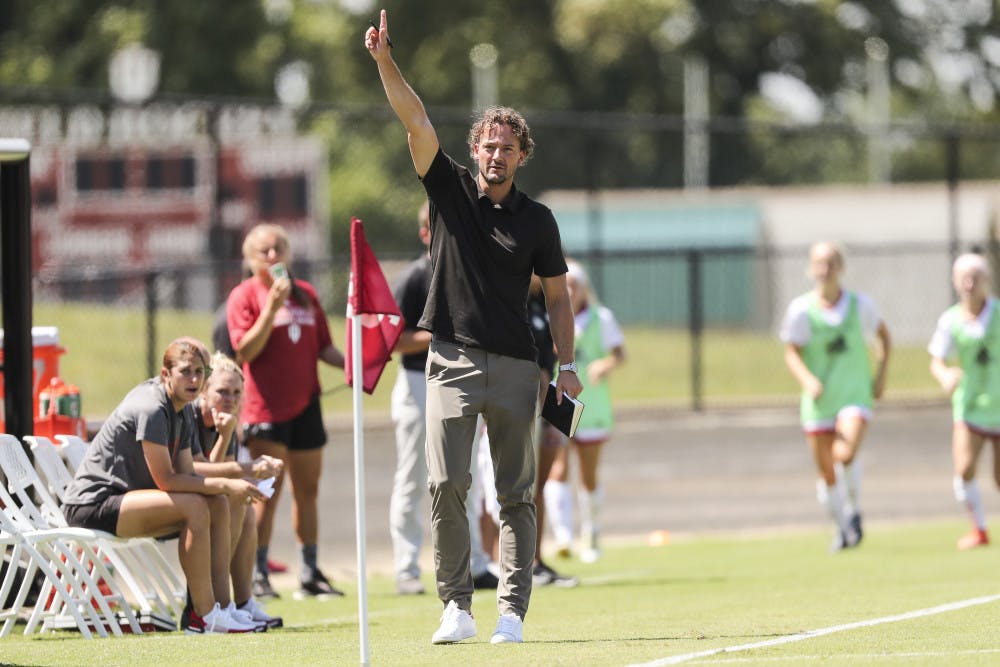
van Bennekom tailored the team’s system towards personnel in his first season, with an emphasis on quality defending this season thanks to capable center backs. The Hoosiers transformed into the Big Ten’s third-best scoring defense, allowing 16 goals in 19 matches. A tidy back line earned eight clean sheets. Training sessions were intense and demanding, designed to simulate game pressure.
“If we have the ball, the other team can’t score. That is the best way of defending, having the ball,” he said.
He’s a forward thinker with ideas to improve the engine behind the college game. He’d like to see substitution and overtime rules changed, and also agrees with Maryland men’s soccer coach Sasho Cirovski’s proposed model to extend the playing season across both the fall and spring to help facilitate student athlete recovery and limit injuries.
Those are big-picture items, but they all contribute to van Bennekom’s savvy psyche that is chipping away at fashioning IU into a well-rounded program.
***
With one year as boss under his belt, van Bennekom is still very early in his Indiana journey. The Dutchman tabbed former assistant Sergio Gonzalez as his new goalkeeper’s coach in December and hauled in a full recruiting class of five signees — three of them scheduled to enroll early and train with the club this spring.
He’s exploring the college town of Bloomington too, making regular stops at Janko's Little Zagreb and Social Cantina with his girlfriend.
“I love Little Zagreb’s; I go there probably every other week. We’re learning new places all the time,” he said, nestled in his Assembly Hall office in the heart of IU’s 17th Street athletics campus.
It’s plain-Jane, minimally cluttered. A fat copy of a team mental sports performance book is parked on his desk, while a whiteboard marked up with a base 3-4-3 formation (a signature style from the Netherlands’ teams in the mid 70’s and 90’s) serves as the backdrop.
He’d rather be practicing than planning for the offseason, as the NCAA Tournament field of 64 was just announced the night before, with Indiana missing the cut.
Said van Bennekom, “We’ve got so many strides to make, including my self. I think we could be pretty good, sooner than later.”
The first year boss’ viewpoint on the game is refreshing, intelligent, and carries a reverence for the game’s inner workings. He learned it in the harbor town of Rotterdam and now serves it up in Bloomington with the urgency and edge to compete now, while recognizing the steps to developing a winner in the future.
